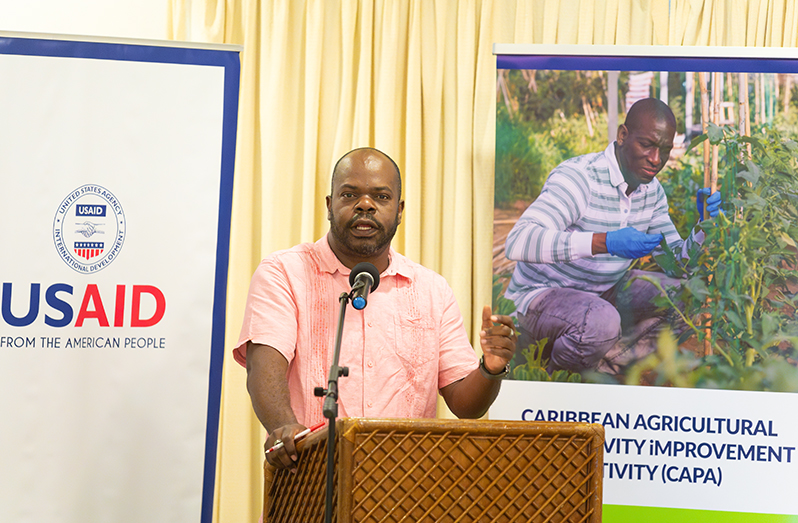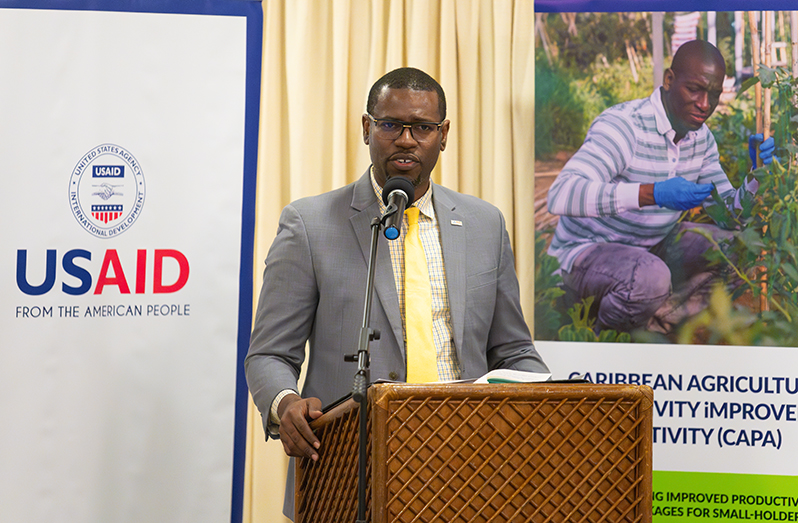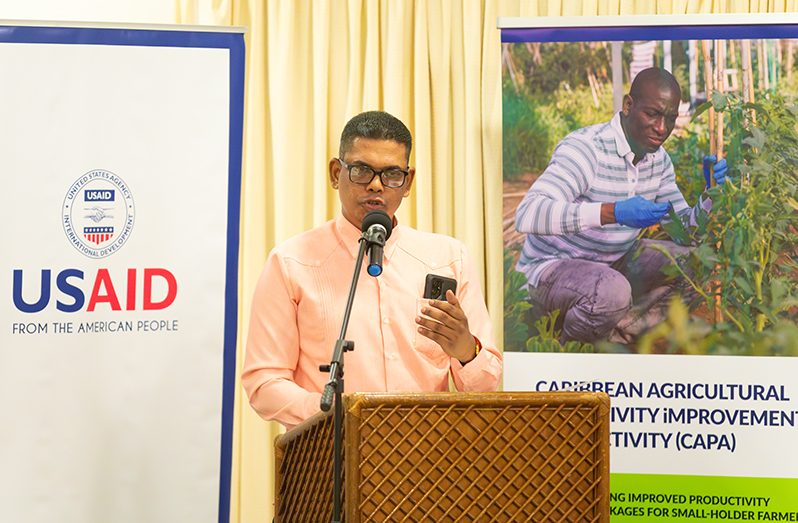THE Caribbean Agricultural Productivity Improvement Activity (CAPA), generously funded by the United States Agency for International Development Eastern and Southern Caribbean (USAID/ESC), took a significant stride towards agricultural empowerment on Tuesday by organising a pre-launch workshop at the Herdmanston Lodge, Georgetown.
This workshop gathered farmers, agricultural entrepreneurs, and private sector stakeholders to facilitate knowledge exchange and capacity-building along the agricultural value chain.
The primary objective of the workshop was to bring together buyers, input suppliers, and farmers, creating a collaborative environment to explore opportunities and share insights. Farmers were provided with a platform to showcase best practices, success stories, and their experiences as ‘agri-preneurs’.
Durwin Humphrey, the Economic Growth and Local Work Development Specialist at USAID/ESC, highlighted the workshop’s focus on cultivating an environment conducive for farmers and key stakeholders in the cherry, coconut, and turmeric value chains. The event aimed to enhance their access to opportunities and increase awareness of the sector’s requirements.

Humphrey expressed optimism, stating, “I believe that the stage is set today for us to make real progress as it relates to strengthening these value chains, and it begins with today’s workshop. I believe that today’s workshop is the first step in what we believe will be really impactful programming over the next three days.”
During the workshop, Dr. Ramnarace Sukhna, Senior Research Scientist at the National Agriculture Research and Extension Institute (NAREI), emphasised NAREI’s mission to ensure food security, prosperity, and livelihood through technological innovation in agriculture. Sukhna outlined NAREI’s collaboration with the Ministry of Agriculture to reduce the importation of crops produced locally, aligning with the goal to achieve 25% self-sufficiency by 2025.

Sukhna shared NAREI’s collaboration with the Food and Agriculture Organization (FAO) and the New Guyana Marketing Corporation to boost cherry production. The Institute also engaged Indian experts to enhance Guyana’s coconut industry and established a spice factory in Hosororo, Region One, to address challenges in processing turmeric.
Highlighting the commitment to farmers’ training, Sukhna mentioned that approximately 218 farmers benefitted from 13,000 seed nuts from Brazil in 2023. He emphasised NAREI’s dedication to providing production technology training to farmers.
Shaun Baugh, Project Manager of Agriculture and Agro-Industry Development at CARICOM Secretariat, stressed the importance of providing tools, systems, and support to assist stakeholders. Baugh encouraged attendees to actively participate in discussions, think critically, and consider local, regional, and global perspectives.
The pre-launch workshop marked a significant step towards fostering collaboration, knowledge sharing, and empowerment within the agricultural sector, setting the stage for impactful programming in the coming days.



.jpg)








